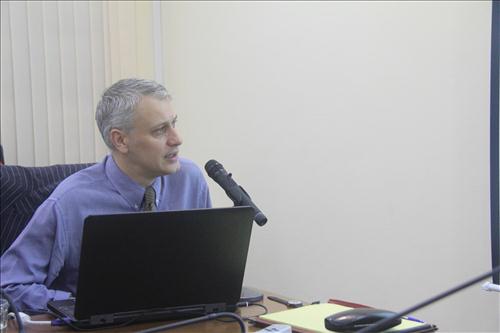
At the reception, Prof. Dr. Pham Quang Minh (Rector of the University of Social Sciences and Humanities) introduced the main achievements in training, scientific research and the main research directions of the University; emphasizing the goal of building a research university and strengthening research projects. To promote this activity, the University wishes to study and exchange academic experiences with foreign scholars. Therefore, the presentation of Dr. Andrew Cottey is of great significance not only to the lecturers but also to the students of the University.
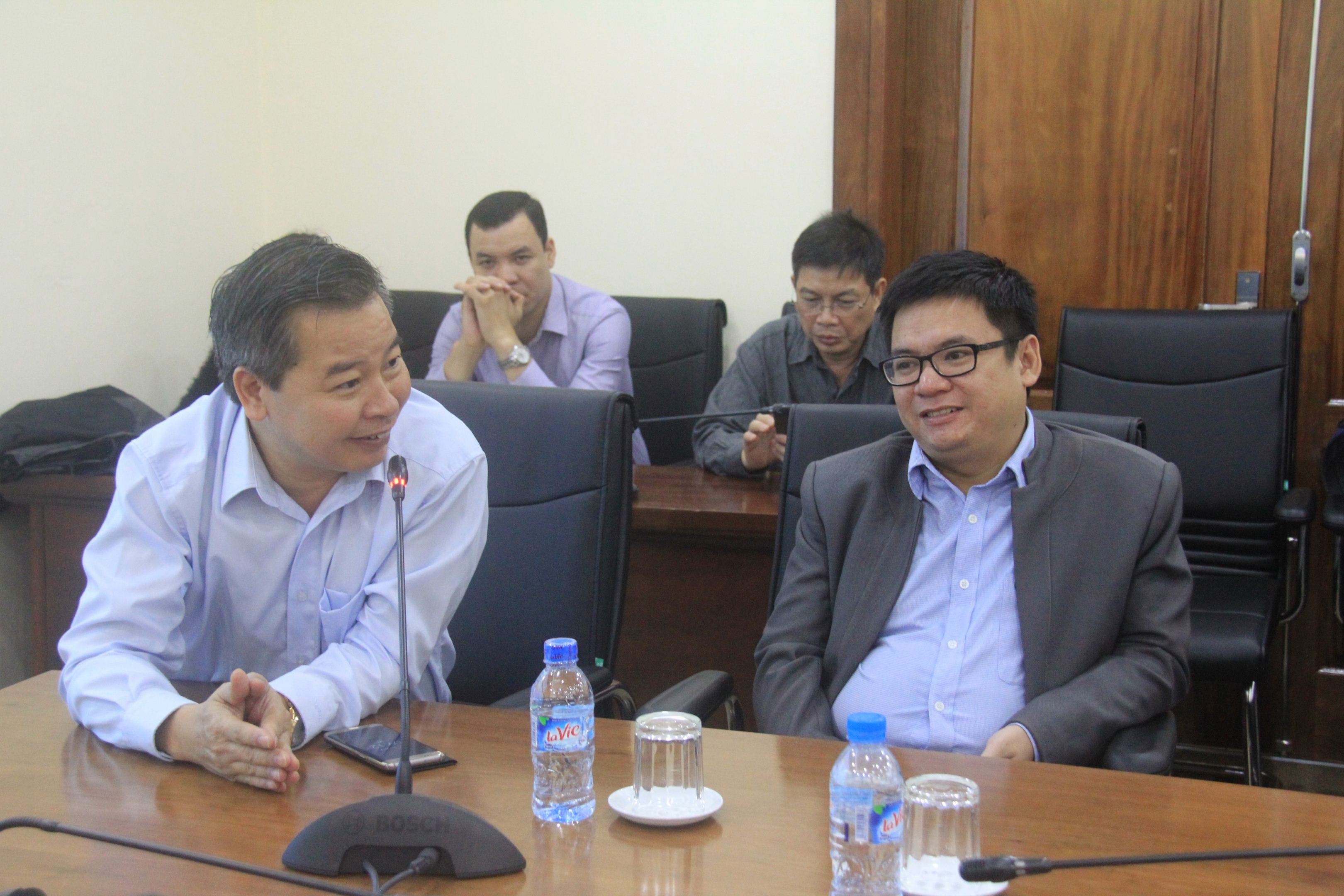
Prof. Dr. Pham Quang Minh (Rector of the University of Social Sciences and Humanities) introduces the University to Dr. Andrew Cottey
At the beginning of his presentation, Dr. Andrew Cottey outlined some of the historical context of Europe. Historically, Europe has maintained a multipolar balance, characterized by competing alliances and wars between great powers such as the two World Wars in the 21st century. During the Cold War, Europe was divided into two poles, East and West, with the potential risk of World War III but also witnessed the emergence of a security community in Western Europe. After the Cold War, Europe strengthened its security community and expanded to Eastern and Central Europe in the hope of closer relations with Russia, while deploying more “soft power”, especially through the EU.
Next, Dr. Andrew Cottey mentioned the current security situation in Europe. In Eastern Europe, NATO and the EU have implemented a two-step foreign policy, both expanding into Central and Eastern Europe and strengthening relations with Russia. However, geopolitical tensions could still spark a second Cold War between the West and Russia, as Russia becomes increasingly assertive and aggressive, culminating in the conflict in Ukraine in 2014-2015. In Southern Europe, the Syrian war broke out in 2011, claiming the lives of nearly half a million people, causing nearly 5 million refugees and triggering the establishment of the Islamic State. Along with that, the immigration crisis in Europe has been and is continuing, with about 1 million immigrants arriving in Europe in 2015, while the EU still has disagreements on the bloc's immigration policy. NATO, for its part, appears to have to significantly reduce its scope of operations within the framework of its member states, through rapid response programs and plans in Central and Eastern Europe. On the other hand, NATO must prevent the risk of conflict with Russia through confidence-building and security-building measures (CSBM), as well as balancing its policy in the east with the south.

Dr. Andrew Cottey presents the current difficulties of the EU in particular and Europe in general.
Faced with these challenges, it can be said that the security situation in Europe in 2016 is worrying. Europe must find a way to end the war in Syria, mend the conflicting relations within the EU, balance “hard power” and “soft power”, find a solution to the financial crisis in the Eurozone, as well as respond to the UK's behavior after Brexit. In June 2016, the EU published the 'EU Global Strategy' on foreign policy, but according to Dr. Andrew Cottey, it is difficult to find an easy solution to the EU's foreign affairs problems.
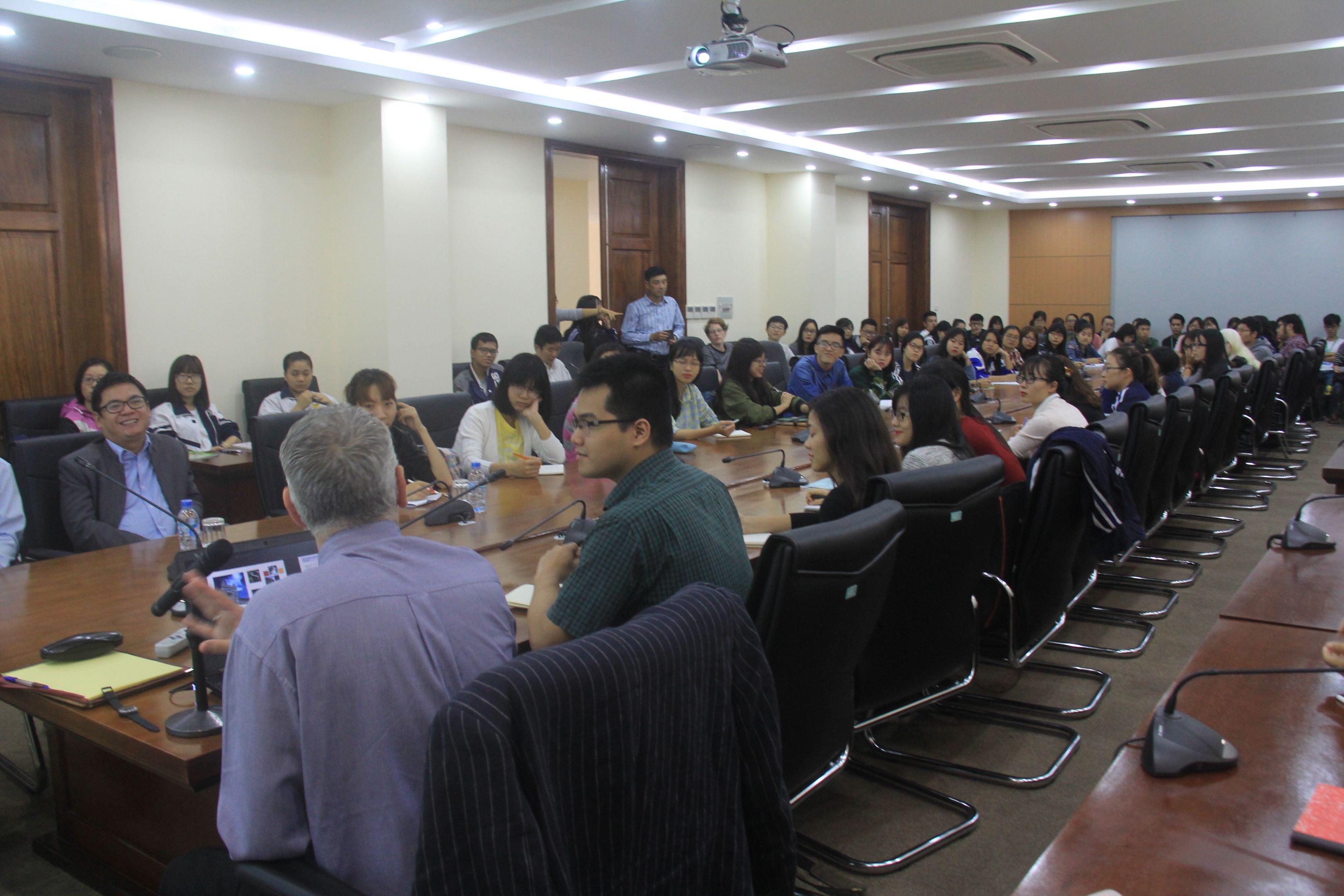
Presentation scene
In conclusion, Dr. Andrew Cottey pointed out some consequences of the European security crisis for Asia. According to him, the Islamic State (IS) and the war in Syria will become a global issue, affecting not only Europe but the whole world, including Asia. In addition, a cold war between Russia and the West, resulting in an imbalance in the Russia-China-West triangle, will not be beneficial for Asia. Finally, the decline of the European economy will indirectly affect Asia, because the economic growth of many Asian countries still depends heavily on exports to Europe.
Dr. Andrew Cottey's presentation received many exchanges and questions from the staff, lecturers and students of the School on issues such as the nature of the security relationship between the EU and NATO, the prospect of the EU's common security defense policy, the position of the UK in NATO before and after Brexit, the consequences of Brexit on separatism in Europe, the policies of EU countries towards immigrants from Africa and the Middle East, etc.
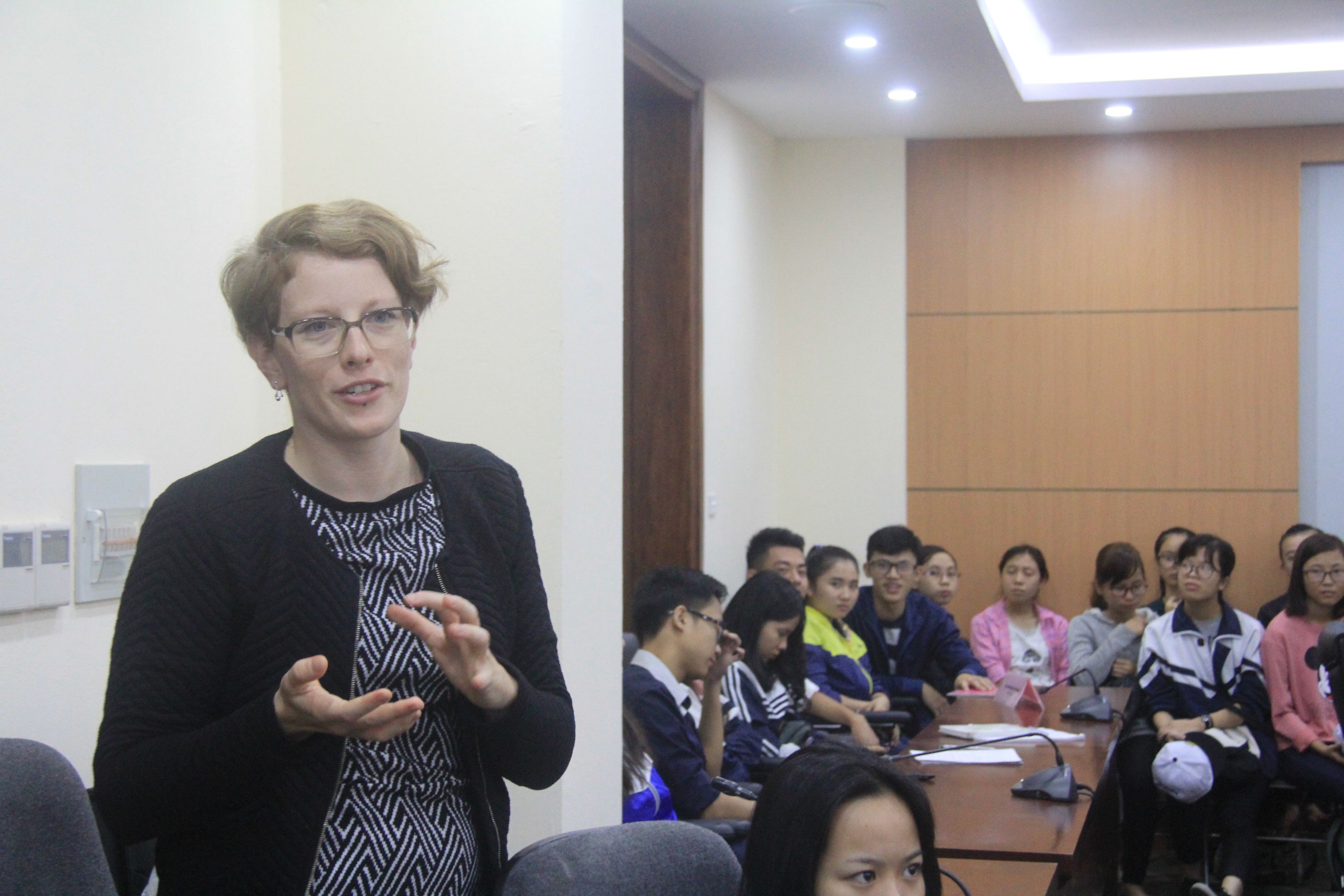
A foreign student asked Dr. Andrew Cottey a question.
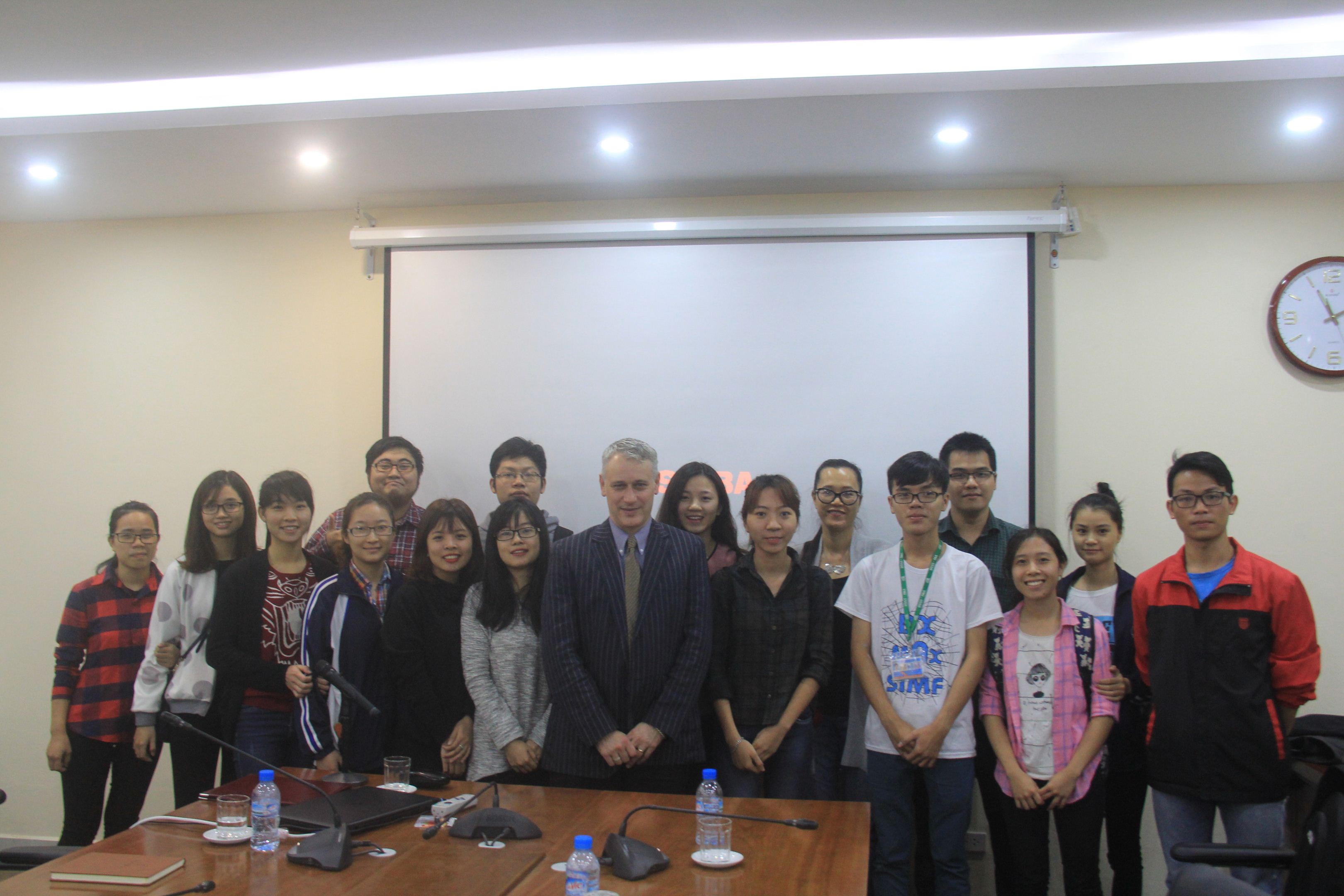
Dr. Andrew Cottey took a souvenir photo with students from the Faculty of International Studies and the Faculty of Political Science.
Dr. Andrew Cottey is a Senior Lecturer and Head of the Department of Government, University College Cork, Ireland. He regularly conducts research and lectures on political science, especially international relations. He has worked at the Department of Peace Studies, University of Bradford, as a Research Assistant at the International Institute for Strategic Studies (IISS) and as a Visiting Professor at the Stockholm International Peace Research Institute (SIPRI). Dr. Cottey's main research interests are European foreign policy, security and defence, especially relations between the EU and the Asia-Pacific region.
Author:Tran Minh
Newer news
Older news